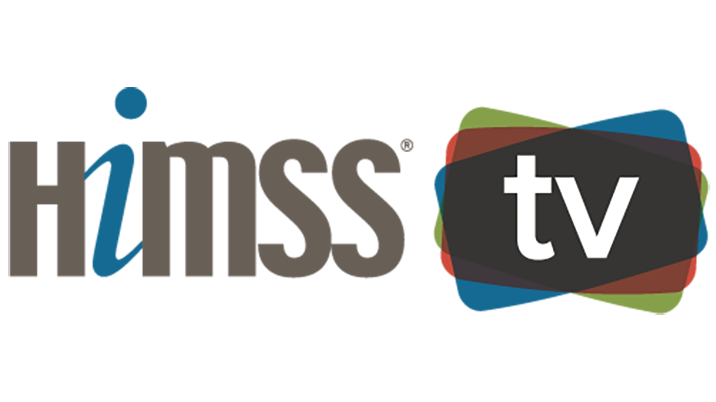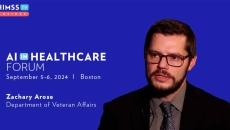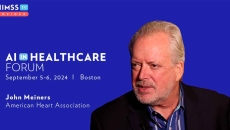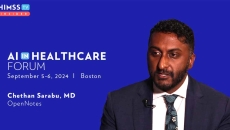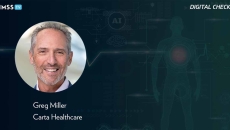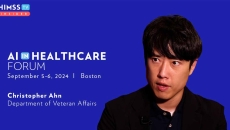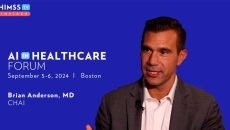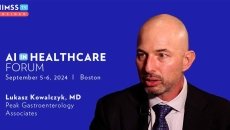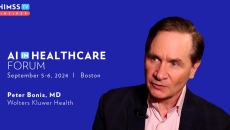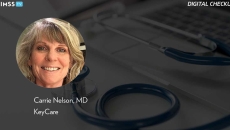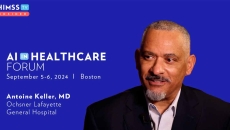HIMSS TV
Zachary Arose, healthcare technology management chief at the Dayton VA Medical Center, says the VA has integrated an AI algorithm for early detection of lung nodules. AI is also adding administrative and bureaucratic efficiencies.
AI has the transformational capability to improve the quality of care and impact research, like the manual review of science, says John Meiners, chief of mission-aligned businesses and healthcare solutions for the AHA.
Dr. Chethan Sarabu, AI and informatics strategist at OpenNotes, discusses how genAI and LLMs are enabling a new level of patient empowerment for direct use of AI in their care across a range of tasks, including questions about their diagnosis.
Over the next year health system IT leaders can expect real and pragmatic applications of AI beyond the experimentation mode into real projects with real value, says Greg Miller, vice president of business development at Carta Healthcare.
Christopher Ahn, biomedical engineer supervisor at the U.S. Department of Veteran Affairs, says that for clinicians who use medical devices an AI chatbot could answer questions and offer support, which is more immediate than filing a service ticket.
Dr. Brian Anderson, cofounder and CEO of CHAI, talks about assurance principles and overlaying an AI model's life cycle so that software developers and other stakeholders can consider best practices when deploying AI within healthcare workflows.
Dr. Lukasz Kowalczyk, a physician at Colorado-based Peak Gastroenterology Associates, discusses the need for a multidisciplinary strategy for AI adoption - and building a clinically valuable algorithm while ensuring ethical use.
Peter Bonis, chief medical officer of Wolters Kluwer Health, discusses health provider and consumer skepticism around AI, supporting trust in AI, the adoption cycle of the technology, and the importance of understanding its limitations.
KeyCare CMO Dr. Carrie Nelson discusses how virtual care can improve acute and chronic conditions while easing clinical workload and improving patient access, especially for seniors during winter.
Cardiothoracic surgeon at Ochsner Lafayette Hospital Dr. Antoine Keller talks about using technology and artificial intelligence to promote access and help the underserved, and details a project that utilizes a portable diagnostic tool.
